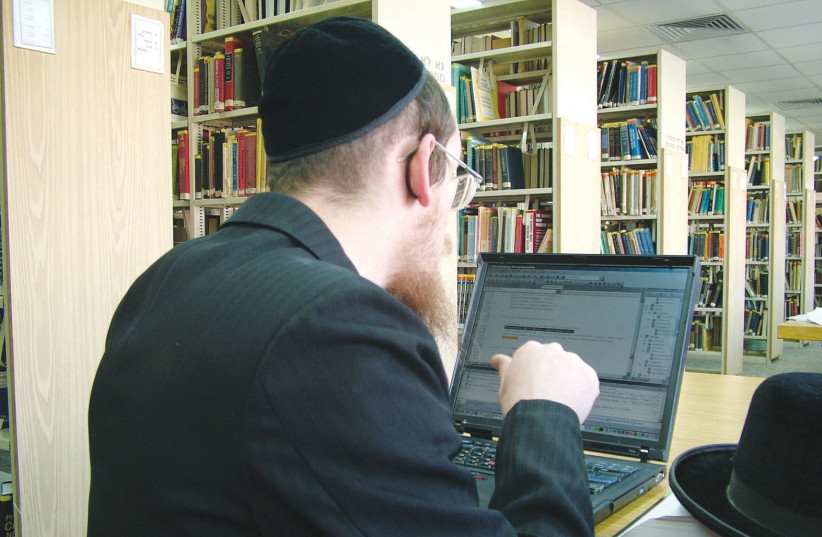A large majority of non-haredi Israelis, as well as the many of the haredim themselves, may not realize that shunning work and pursuing Torah study full time is a perversion of the general consensus of the rabbis of the Talmud, who exalted labor: “Great is labor, for it honors the worker” (Nedarim 49b), and simply, “Love work” (Avot 1:10). “Work is more beloved than the merit of the fathers” (Gen. R. 74:12), and “If a man works, he is blessed” (Mid. Ps. 23:3). Performing one’s worldly occupation was one of the four activities that the Talmud says “require strengthening” [i.e., constant renewal of one’s effort in order to succeed] (Ber. 32b). The rabbis offer the following advice: “If a person says, ‘I have worked and have not achieved,’ do not believe him. If he says, ‘I have not worked but still have achieved,’ do not believe him. However, if a person says, ‘I have worked and have achieved,’ you may believe him” (Meg. 6a).
Although the ideal occupation was to study Torah, Rabban Gamaliel offered a practical qualification: “Torah study is good when combined with a worldly occupation, for the exertion of both makes sin forgotten. All Torah study that is not joined with work will eventually cease and leads to sin” (Avot 2:2). The rabbis interpreted this as meaning that if a scholar has no work by which he earns a steady livelihood, he will have to seek work at random, thus wasting time that he could otherwise have devoted to the study of Torah. If unsuccessful in finding honest work, he might be tempted or driven to dishonest means of obtaining a livelihood. Consequently, one of the major duties of a father was to prepare his son to earn a living: “He who does not teach his son a craft/trade, teaches him to be a robber (Kid. 29a).
For the ordinary person, the rabbis suggested a realistic combination of work and study: “If a man learns two paragraphs of Torah in the morning and two in the evening, and engaged in his work all the [rest of the] day, it is as though he had fulfilled the entire Torah” (Tanh. Beshalach 20). A midrash proposed an ideal schedule of dividing the working hours of the day into three parts: one-third for devotion (prayer), one-third for learning (studying Torah), and one-third for working. Another recommended allocation of time was to study in the winter and work in the summer (Eccles. R. 9).
The rabbis praised the value of labor: “A blessing rests only on the work of a man’s hands” (Tosefta Ber. 7:8), and “A person who has not worked will not eat” (Gen. R. 14:10). Most sages came from poor families and were humble workers who eked out a living. Rabbi Akiva collected a bundle of wood each day and lived on the money he received for it (ARN 6). Rabbi Meir was a scribe (Er. 13a), Rabbi Yochanan a sandal maker (Avot 4:14), and Rabbi Jose ben Chalafta made leather goods (Shab. 49b). Rabbi Joshua was a coal burner (smith), who is described as living in a house with black walls (Ber. 28a). Rabbi Judah was a baker (BB 132a), and Abba Saul was a kneader of dough (Pes. 34a), who had previously worked as a gravedigger (Nid. 24b).
The tradition of renowned sages working persisted well after the Talmudic era. For example, Rashi and his grandsons Rabbeinu Tam and Rashbam were vintners. Maimonides and Judah Halevi were physicians. The Chofetz Chaim was a bookkeeper in a small grocery store managed by his wife. The Baal Shem Tov was a night watchman of a synagogue and served as a shochet (ritual slaughterer).
Do non-working haredi men today truly believe that they are more worthy Torah scholars than were the great sages of the Talmudic and subsequent eras?■
Ron Eisenberg, MD, JD, is professor of radiology at Harvard Medical School and has a doctoral degree in Jewish Studies.

